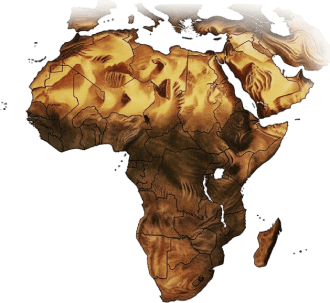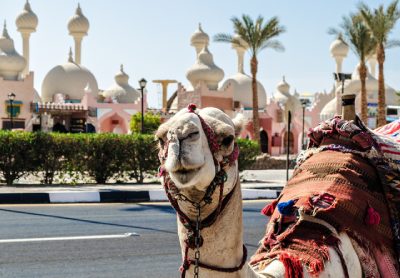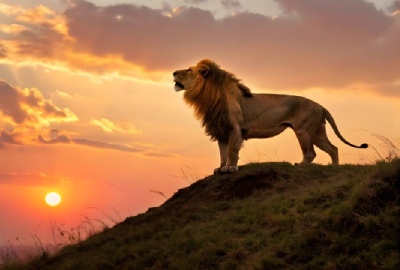Understanding Africa – Geography, Culture, Population and Economic Growth
When you think of Africa, you might picture Black people first—and that makes sense since most of the population is Black. But Africa is incredibly diverse. In some regions, you'll also find people of Arab, European, and mixed heritage. It's a continent full of different faces, cultures, and histories—all part of what makes Africa so unique and vibrant.
There is a lot more you need to know about Africa. Did you know that Africa is bigger than the USA, Canada and India together? If you are interested in where you can find diverse cultures, growing cities, abundant resources, and a young, vibrant population, then you should tour the African continent. This article discusses key aspects of Africa's identity and global relevance; read on and enjoy!
A Giant on the Map - Africa's Breathtaking Geography

Do you know that the population of Africa makes it the world's second-largest Continent? They have a population that is estimated to be about 1.54 billion, which represents 18.83 percent of the whole world's population. That is a lot! They also have a large land mass covering approximately 30 million square kilometres. That is about 20% of the Earth's total land area.
If you carefully check the world map, you will see that Africa is mapped out from the Mediterranean Sea in the north and passes the meeting point of the Atlantic and Indian Oceans in the south, then from east to west, it spans from the Red Sea to the Atlantic coast. In short, the African continent is such a unique continent. And that is why its landscape makes it a good place to visit for tourism. This continent has eight major physical regions, and they include:
- Savannas
- The Swahili Coast
- Rainforests
- The African Great Lakes
- The Sahara
- The Sahel
- The Ethiopian Highlands
- and Southern Africa
Each of these regions has its unique features - Plants and Animals.
Nature's Masterpiece - Exploring Africa's Unique Ecosystems
Africa is not just a landmass; it's a living, breathing canvas of nature's finest work. From sun-scorched deserts and lush rainforests to rolling savannas and soaring highlands, every corner of the continent tells a different story. These ecosystems are home to some of the world's most extraordinary wildlife, breathtaking landscapes, and rich biodiversity that continues to inspire wonder. Below are some of the key features of these physical regions, each with its rhythm, beauty, and role in the continent's natural harmony.
Sahara Desert
The Sahara desert is the world's largest hot desert and it is almost the size of Brazil. The desert is made up of ergs (huge dunes), regs (gravel plains), hamadas (rocky plateaus), and oases. It is also worth mentioning that it has a Salt mining industry. And although it is very hot animals like camels, jerboas, and scorpions survive there easily.
Savannas
Savannas cover nearly half of Africa with grasslands. Although they are almost everywhere, the best-known area is the Serengeti Plains, and it is famous for wildebeest migrations. This same place contains a large wildlife base with lions, zebras, elephants, and several other wild animals. Unfortunately, savannahs now face threats from farmland expansion, but ecotourism here is strong.
Sahel
The Sahel is a narrow, semi-arid strip between the Sahara and the savannas. This place easily grows grains, cotton, and nuts. We should also mention that it has good soil for hardy species like gerbils and baobab trees. Unfortunately, there is often desertification from drought, overgrazing, and climate change.
Ethiopian Highlands
These are mountainous regions formed by volcanic uplift. If you pay a visit, you'll find breathtaking views like the Simien Mountains. There is also a mix of diverse wildlife: Ethiopian wolf, gelada baboon, and walia ibex. Notably, native plants here include the ensete and the Ethiopian rose.
Swahili Coast
The Swahili coast stretches along East Africa's shore, protected by coral reefs. Surprisingly, centres like Kilwa Kisiwani remain for historical trade. You will also find mangrove forests and unique animals like the golden-rumped elephant shrew and bush babies.
Rainforest
The rainforest is home to thousands of animal and plant species. Here, you will find animals like gorillas, okapi, forest elephants, and driver ants. Indigenous tribes (Mbuti, Twa, Baka, Aka) also live there traditionally, but they face threats from population growth and land use.
African Great Lakes
The African Great Lakes are formed by tectonic rifts and include Lakes Victoria, Tanganyika, and Malawi. These lakes are vital water sources and are used as hydropower sites. They are also rich in fish and provide a good base for hippos, crocodiles, and migrating animals. Unfortunately, they are disturbed by invasive species like water hyacinths.
Southern Africa
In the southern Africa region, you will find ancient rock formations and reserves that protect wildlife. It is a terrestrial environment home to springboks, rhinos, zebras, and impalas. Another wonder about this region is that the Cape Floral Region has 20% of Africa's plant species in a tiny area, including the giant protea.
More Natural Wonders - Mountains, Rivers, and Valleys That Define Africa

- The Congo Basin is one of the world's biggest rainforests.
- Mount Kilimanjaro, located in Tanzania, is the highest mountain in Africa.
- The Great Rift Valley is a region known for its vast lakes and terrains.
- Africa also has major rivers such as the Nile, Congo, and Niger.
These natural landscapes support agriculture, transportation, tourism, and ecosystems that are useful to life on the continent.
At the World's Center - Africa's Strategic Location and Influence
Geographically, Africa lies at the center of the world map. The Equator runs through the middle of the continent, placing it in both the Northern and Southern Hemispheres.
Surrounding borders include:
- The Atlantic Ocean is to the west.
- The Indian Ocean is to the east.
- The Mediterranean Sea is to the north, separating Africa from Europe.
- There is a land connection to Asia via Egypt in the northeast.
The way Africa is centrally located has historically made it a vital point for global trade, culture, and migration.
The Young and the Restless - Africa's Dynamic Demographics
With a large population exceeding 1.4 billion, Africa accounts for about 18% of the world's people, making it the second most populous continent after Asia.
Top Five Most Populous African Countries
| Country | Approximate Population |
|---|---|
| Nigeria | 220 million |
| Ethiopia | 120 million |
| Egypt | 110 million |
| Democratic Republic of Congo | 100 million |
| Tanzania | 65 million |
Key Demographic Insights
- Over 60% of Africa's population is under the age of 30.
- Rural farming is one of the major occupations widely accepted and still practiced across the African continent today.
- All over the continent, there is rapid urbanization, leading to growth in cities.
Urban Pulse - Africa's Fast-Rising Cities You Should Know
Africa's cities are turning into major centers of business, innovation, and culture. Here are some of the countries that are fast becoming industrialized:
Lagos, Nigeria

Lagos is a center for many commercial and business purposes. It is a cultural city known for its music, fashion, and vibrant economy. It is also Africa's most populous city.
Cairo, Egypt

Cairo is the capital of Egypt. This place has deep roots in religion, politics, and education. It is very close to the ancient pyramids that have become tourist centres.
Kinshasa, Democratic Republic of Congo

Kinshasa is a French-speaking city. They are known to have a pleasant artistic and musical heritage.
Nairobi, Kenya

This city is home to one of the fastest-growing tech hubs in Africa. It is located near world-renowned wildlife reserves.
Johannesburg, South Africa

At first, Johannesburg was a mining settlement, but today, it is one of Africa's key financial and business centers.
A Symphony of Voices - Africa's Culture and Languages
Africa is made up of several ethnic groups, languages, and traditions that are entirely different from each other. There are amazingly more than 3,000 ethnic groups and over 2,000 languages spoken on the African continent. The main language families are Afroasiatic, Nilo-Saharan, Niger-Congo, and Khoisan. The widely spoken languages are Arabic, Swahili, Hausa, Amharic, Yoruba, Igbo, and Zulu.
Although many African countries still speak these languages, many of them now widely speak and use European languages such as English, French, and Portuguese in education, business, and government, depending on which country colonized them.
Religious Landscape

Africa takes religion seriously. Before now, they only engaged in traditional worship and festivals, paying homage to their culture and ancestors. However, after European countries colonized these African countries, they followed the religion of those who colonized them. For example,
- Islam dominates in North, West, and parts of East Africa.
- Christianity is strong in the South, East, and Central regions.
- Traditional African religions are still deeply rooted in many African countries and are often blended with Islam or Christianity.
Another interesting thing about Africans is their culture, and the best part about this is they express themselves through music, dance, cuisine, fashion, storytelling, and community life.
Africa’s Economic Powerhouse
Africa is so rich in natural and human resources, offering a lot of potential for economic growth and innovation.
Key Sectors in African Economy
These are some of the crucial sectors in the economy of the second-largest continent of the world:
- Agriculture: Major crops include maize, rice, coffee, cocoa, and cotton.
- Mining: Gold, diamonds, copper, coal, and other valuable minerals are found in Africa.
- Oil and gas: Nigeria, Angola, and Libya are the top producers of these products.
- Technology: Innovations in fintech and mobile banking are booming, especially in Kenya and Nigeria.
- Tourism: Unique landscapes, wildlife, and cultural heritage attract millions of people.
Challenges That Have Affected Africa's Economy
In the last ten years, there has been remarkable growth in Africa's approach to technology and industrialization. However, there are still some problems that remain a huge problem and need urgent attention, and these include:
- Infrastructure gaps, such as poor road networks and limited internet access.
- Persistent poverty and youth unemployment.
- Economic inequality between urban and rural areas.
- Poor Governance and leadership
However, progress is underway. The African Continental Free Trade Area (AfCFTA), launched in 2021, unites 54 nations into a single market to enhance intra-African trade and economic collaboration.
Africa on the Rise - Global Influence and Regional Strength
Africa is gaining influence on the world stage, driven by its youthful population, cultural exports, and strategic partnerships.

Through the African Union (AU), countries collaborate on peace, trade, health, and climate issues. Leading nations such as Nigeria, South Africa, Egypt, and Kenya often shape the continent's political and economic direction.
Africa's global influence is growing through:
- Music: Afrobeats and Amapiano are popular genres that are gaining global popularity.
- Film: Nollywood and South African productions are reaching international audiences.
- Fashion: African prints and styles are featured on runways and in global retail.
- Sports: African athletes excel in football, athletics, and beyond.
Africa is also actively planning and holding international dialogues on:
- Climate resilience and renewable energy.
- Public health innovation.
- Technology and digital inclusion.
- Sustainable development.
Wrap Up
Africa is a continent of possibility. The uniqueness of culture, the talent they possess, and the natural wealth of the continent altogether, if harnessed and properly put to use, will be Africa's greatest strength. From the vast Sahara to modern cities like Lagos and Nairobi, Africa's landscapes and people reflect both timeless traditions and forward-looking ambition.
Despite the challenges Africa faces, it stands on the edge of transformation. With unity, innovation, and investment in its people, the continent is positioned to grow in the 21st century and beyond. Africa is a wonderful place to be. If you want to learn more about Africa, try to live with them. Africans are selfless, kind, intuitive, and always want to know.
In the near future, Africa will not just rise. It will lead.
